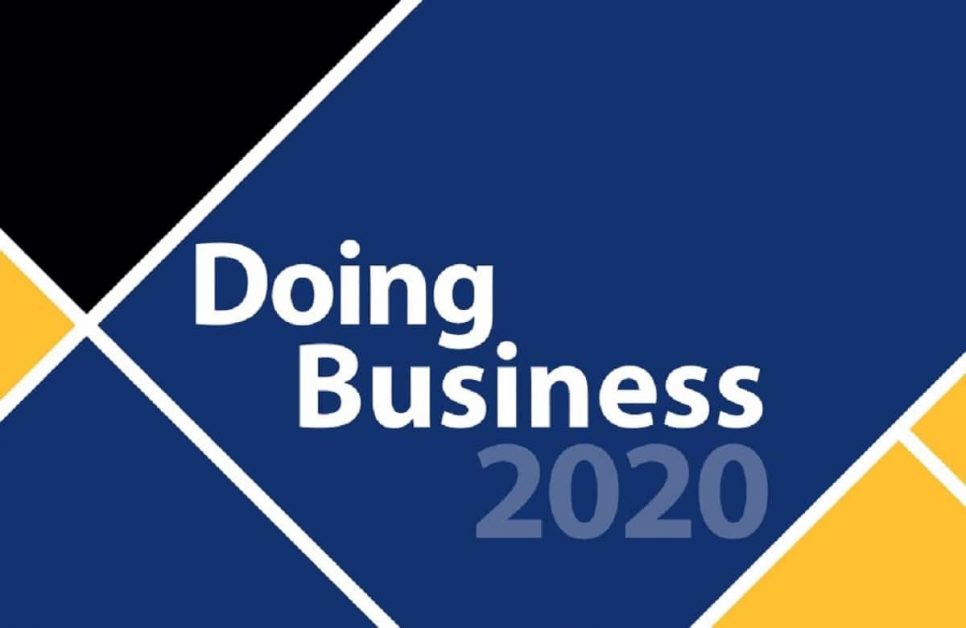India has climbed 14 places, to be ranked 63 among 190 countries, in the World Bank’s Ease of Doing Business 2020 report. It was also among the top ten economies with the most notable improvement in doing business.
The country performed better in six of the ten parameters used for ranking including starting a business, dealing with construction permits, trading across borders, resolving insolvency, paying taxes and getting electricity.
In the three areas of getting credit, protecting minor investors and enforcing contracts, India fared the same as last year while its performance fell for registration of properties.
The cities covered in India for carrying out the study continued to be New Delhi and Mumbai despite some speculations that this time Bengaluru and Kolkata, too, would be included.
Prime Minister Narendra Modi had set the target for India to break into the top 50 ranking this year, but it seems the country will have to wait for at least another year.
“It’s great to see continued progress in India’s World Bank Ease of Doing Business ranking. The biggest opportunity to break into top-30 lies in ‘enforcing contracts’ where our sub- rank has remained at 163rd out of 190,” said Vishesh C Chandiok, CEO, Grant Thornton India LLP.
Resolving insolvency has shown a jump of 56 spots, endorsing the successful implementation of the Insolvency and Bankruptcy Code, 2016, pointed out Vikram Kirloskar, President, CII. Similarly, there has been tremendous improvement in the areas of `dealing with construction permits’ and `trading across borders’ with procedures and time and cost for exports and imports coming down sharply, he added.
“We have of course a long way to go in several other indicators like enforcing contracts, registering property and starting a business,” the CII chief said.
To improve India’s `getting credit’ ranking, it is essential to drive inclusion of alternative data in the ambit of credit bureau coverage to include larger sections of the society who may not have a footprint in the formal credit sector, said Harshala Chandorkar, Chief Operating Officer, TransUnion CIBIL. “Alternative payment data such as data on records of payment on electric, telecommunications and other recurring obligations can serve to evaluate the risk to those potential borrowers that are outside the credit mainstream,” he said.
India’s ranking in the index had gone up 23 places to 77 last year in World Bank’s Ease of Doing Business 2019 report. Those economies that score well in doing business tend to benefit from higher levels of entrepreneurial activity and lower levels of corruption, the report said.
While economic reasons are the main drivers of reform, the advancement of neighbouring economies provides an additional impetus for regulatory change.
The top ten economies with most noted improvement, including India, Saudi Arabia, Jordan, Togo, Bahrain, Tajikistan, Pakistan, Kuwait, China, India and Nigeria, implemented one-fifth of all the reforms recorded worldwide in 2018-19, the report said.
By documenting changes in regulation in 12 areas of business activity in 190 economies, Doing Business analyses regulation that encourages efficiency and supports freedom to do business, the report said. The two parameters that are not included in the ranking process are regulation on employing workers and contracting with the government.
As per the report, India made starting a business easier by abolishing filing fees for the SPICEe company incorporation form, electronic memorandum of association and articles of association. It streamlined the process, reduced the time and cost of obtaining construction permits and improved building quality control by strengthening professional certificate requirements.
India made trading across borders easier by enabling post-clearance audits, integrating trade stakeholders in a single electronic platform, upgrading port infrastructures and enhancing the electronic submission of documents.
Resolving insolvency was made easier by promoting reorganisation proceedings in practice. India also made resolving insolvency more difficult by not allowing dissenting creditors to receive as much under reorganisation as they would receive in liquidation, the report added. 2020






